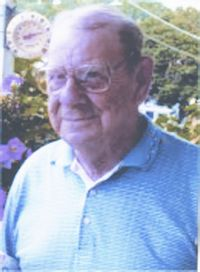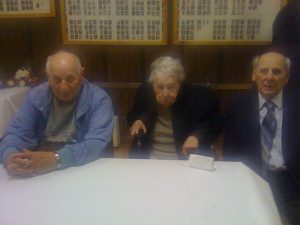Today marks the 150th Anniversary (Sesquicentennial) of the Civil War (or War Between the States, or War of Northern Aggression). No event in our history as a nation says more about who we are than this: the time between April 12, 1861 (the attack of Ft. Sumter) and April 9, 1965 (the surrender at Appomattox) we were a country at war with ourselves. By the time it ended 625,000 of us would be dead (more than died in World War I and II combined).
There are probably more books written about these four years than any other time in our history. Here are suggestions from books I’ve read:
- Across Five Aprils by Irene Hunt. I read this as a child and it gave a good sense of how the war could divide families
- Hidden In Plain Sight: The Secret Story of Quilts and the Underground Railroad by Jacqueline Tobin and Raymond G. Dobard. This book describes how enslaved slaves used quilts to signal escaped slaves to follow the Underground Railroad
- Uncle Tom’s Cabin by Harriet Beecher Stowe. This book was written by the daughter of an avowed abolitionist and gave Americans of the north an accurate sense of slavery in the south.
- Team of Rivals by Doris Kearns Goodwin. I read this a few years ago and find it the book on the character of the man.
- The Fiery Trial: Abraham Lincoln and American Slavery by Eric Foner. This is a stunningly well written book that describes Lincoln’s complex views on slavery and slaves.
Growing up in Northern Virginia (and as an adult living in the city of Manassas) I was struck by how the war continued to live in people who were born 100 years later. I was aware that the war itself was called by different names (Civil War, War Between the States, etc.) and I learned that even the battles had different names: Bull Run vs. Manassas, Chancellorsville vs. Wilderness, and others.
I also learned that the reasons for the war were not in agreement. In the north it was viewed as a war about whether or not slavery would exist, and in the south it was about whether states (who voluntarily joined the union) could leave the union. The more I read the more I’m convinced that slavery is the reality that cannot be ignored.
The roots of the Civil War can (and must be) traced back to the writing of our Constitution. The framers who drafted the Constitution in 1787 faced a dilemma when it came to slaves: how can we say all men are created equal when clearly some are the property of others. Several of framers were slave owners themselves, and while they may have found the institution of slavery distasteful, they participated in it. They also believed that the new nation would not survive if they tried to outlaw slavery. Essentially they punted, and hoped the issue would be resolved in future generations. It is interesting to note one compromise in the 1st Article of the Constitution: “Representatives and direct Taxes shall be apportioned among the several States which may be included within this Union, according to their respective Numbers, which shall be determined by adding to the whole Number of free Persons, including those bound to Service for a Term of Years [ie, not slaves, but indentured servants], and excluding Indians not taxed, three fifths of all other persons.” In other words, if you owned 5 slaves they were counted as 3 persons in the census.
By the time of the Civil War, some 80 years later, slavery had become an institution in the South and most Northerners either had no opinion or found it distasteful but not serious enough to end. It was also a time of Westward expansion into new territories like Missouri and Kansas. Many people in the North, including Abraham Lincoln, wanted to stop slavery where it is and not allow it to move west. Southern slave owners were outraged and believed this discriminated against them. They felt so alienated that they came to the decision that since they voluntarily joined the United States in 1789 they could just as voluntarily pull out and form their own nation. Those in the North disagreed and believed that joining together in 1789 was an irreconcilable covenant that can’t be broken. The war officially started on April 12, 1861 when Southern forces (or members of the newly formed Confederate States of America) began shelling the garrison at Ft. Sumner, South Carolina.
It’s my belief that the South never really believed the North would fight all that hard, and it is generally believed that the South expected a victory in a few weeks or months. It didn’t happen that way. President Lincoln was adamant that the Union be preserved and came only later to the belief that the post war Union would prohibit slavery. By the time the war ended the South was in shambles and the next 12 years would be called “Reconstruction.” In some ways this was as bad a time for the South as the war itself. After President Lincoln’s assassination on April 14, 1865 he was replaced by Andrew Johnson a Southerner who remained in the Senate from Tennessee even after his state seceded. He was a weak man and Radical Republicans made life very difficult in the South. Out of this came a South that wanted to see pre-Civil War days as much better than they were. They saw it as a time when ladies and gentlemen were safe while they cared for slaves who were content with their lives. They denied that the war was about slavery or its westward expansion and that freeing slaves made them into dangerous men roaming the countryside looking for opportunities to harm or kill white people. The 1915 movie Birth of a Nation makes this point and claims the Ku Klux Klan formed as a way of protecting white people from former slaves.
Even today the Confederate Battle Flag draws controversy as some see it as a symbol of slavery while others see it as Southern heritage and tradition.



